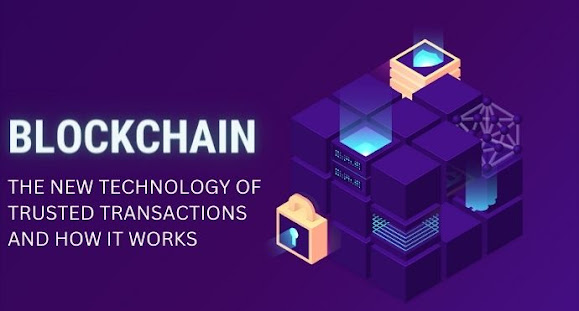Blockchain: The New Technology of Trusted Transactions and How it Works
Blockchain is a revolutionary new technology that enables trusted transactions without the need for a third party. It is a secure, distributed digital ledger that records public network transactions using cryptography. What this means is that the transactions are verified, secure, and immutable.
At its core, blockchain is a distributed database maintained by a computer network rather than relying on a centralized server. It works by recording transactions in data blocks, which are then chained together in an ever-growing list, or ‘blockchain’.
Using cryptography, blockchain allows two parties to prove transactions and ownership securely without needing a third-party intermediary. This makes it an efficient and more secure way to transfer data and value.
In addition, blockchain also offers advantages such as cost savings, transparency, trust, and decentralized control. It does this by removing the need for third-party intermediaries and by using cryptographic algorithms to ensure that data is not tampered with.
Verified Transactions
Blockchain is a database or digital ledger of transactions. When a new transaction is added to the database, it is verified against the existing ledger. This verification process is done using a consensus algorithm, which ensures that all parties involved in the transaction agree on its validity. Once the transaction is verified, the data is added to the blockchain and cannot be altered in any way. This makes it extremely difficult for anyone to tamper with data stored on the blockchain.
Transactions are Fast and Irreversible
With blockchain, transactions are fast and irreversible. This means that all parties involved can trust the records and guarantee that the transaction is valid and secure. It eliminates the need for a third-party intermediary, making it faster and more secure. Additionally, distributed ledgers are decentralized, making them less vulnerable to attacks or data manipulation.
Provide Data Privacy
Another key feature of blockchain technology is its ability to provide data privacy. Transactions are encrypted and stored in an immutable form, meaning they cannot be manipulated by anyone. As a result, only those involved in the transaction can view and access the data. This makes it ideal for use in applications such as banking, where sensitive data needs to be kept secure.
Blockchain also has smart contracts which allow users to easily execute and enforce agreements without the need for a third party. Smart contracts are coded to execute automatically when certain conditions are met, eliminating the need for manual processes. This helps reduce costs and speeds up business operations.
Decentralized
Finally, blockchain networks are decentralized, meaning they are not owned or controlled by any single entity. The data stored on the blockchain is shared across multiple computers, which prevents any single computer from controlling the data. This ensures that the data is accurate and secure, making it difficult for hackers to access and manipulate data stored on the blockchain.
The applications of blockchain technology are virtually limitless, from secure financial transactions to digital identity verification to smart contracts and beyond. Blockchain technology is also secure, meaning that it is almost impossible to hack or tamper with it. This makes it a great tool for protecting data and ensuring transaction integrity.
As blockchain technology continues to evolve, we can expect to see its innovations continue to revolutionize the way we do business. From secure transactions to digital identity verification, blockchain technology is the new technology of trusted transactions.
Source Link: https://bit.ly/3K0TLt7
Contact US:
Mobiloitte Technologies
Phone: +91–9999525801
E-mail: connect@mobiloitte.com


Comments
Post a Comment